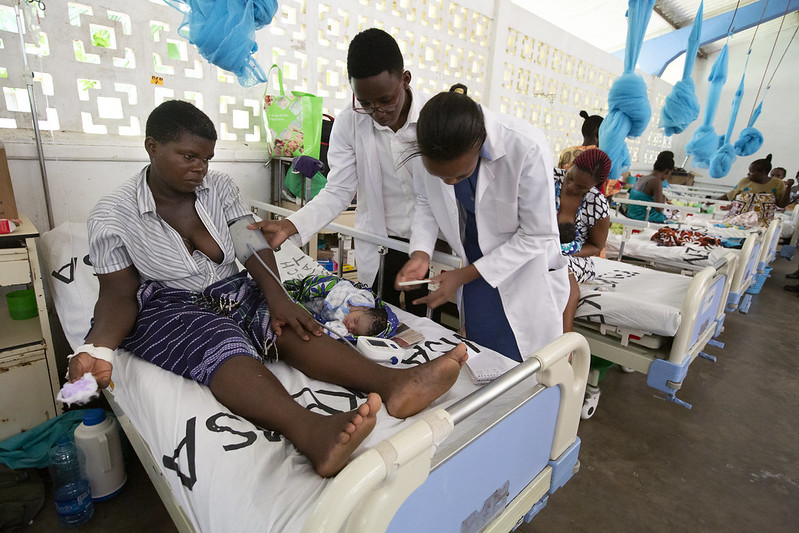
Patients receiving treatments with little or inadequate medicine supplies. Photo/Courtesy
By Daisy Okiring
NAIROBI, Kenya– Kenya’s healthcare sector is teetering on the brink of a nationwide drug shortage after the Kenya Pharmaceuticals Distribution Association (KPDA) accused the Pharmacy and Poisons Board (PPB) of blocking the importation of over 21,000 essential medicines.
According to KPDA Chairperson Dr. Kamamia Wa Murichu, the crisis stems from the PPB’s decision to reconfigure its online importation portal to meet World Health Organization (WHO) standards. While the change was meant to improve regulation and transparency, the distributors claim it has paralyzed the system, cutting off the country’s medicine supply chain.
“Over 21,000 essential medicines have been blocked from importation. Kenya depends on imports for nearly 80% of its drug supply, so this disruption directly endangers public health,” said Dr. Murichu in a statement on Monday.
The stalled imports reportedly include antibiotics, vaccines, insulin, antimalarials, cancer therapies, blood pressure drugs, and HIV treatments — putting millions of lives at risk if the impasse continues.
Cost of treatment set to skyrocket
The KPDA warns that drug prices could surge between 30% and 50% if the restrictions persist. Already, pharmacies are reporting dwindling stocks, and hospitals fear running out of vital supplies within two weeks.
“Diabetes treatment costs could jump from KSh 4,000–6,000 to KSh 9,000,” Dr. Murichu warned. “That would push thousands of households below the poverty line.”
The association claims that the sudden portal reconfiguration violated prior agreements with industry stakeholders, undermining trust in the country’s already fragile pharmaceutical system.
“Such unilateral actions cripple confidence between regulators, healthcare providers, and the public. They risk paralyzing the very system they are meant to protect,” said Dr. Murichu.
Read More: KMPDU threatens nationwide strike after 136 infant deaths in Kiambu
PPB dismisses the claims as “false alarms”
The Pharmacy and Poisons Board has pushed back, accusing the distributors of spreading misinformation to stir panic. In a statement, the board clarified that no medicines have been “blocked” and that over 9,000 medical products remain accessible and compliant with national standards.
“Contrary to the falsehoods circulating, there is no blockade of medicines in Kenya,” the PPB said. “Essential drugs remain available for local manufacture, importation, and distribution.”
PPB insists the digital system upgrade was necessary to align Kenya with WHO’s global regulatory benchmarks, paving the way for the country to achieve Maturity Level 3 — a status that recognizes functional and internationally compliant drug oversight systems.
However, health sector insiders say the new system rollout was rushed and poorly communicated, creating confusion among importers and clearing agents.
Read More: Mbagathi Hospital transforms with NICU with tech breakthroughs
Fears of a nationwide health disaster
The KPDA is now calling on President William Ruto, the Ministry of Health, and Parliament to intervene urgently to avert a full-blown health crisis. The association warns that failure to act could trigger medicine shortages across 12,000 pharmacies and 6,000 hospitals, with ripple effects on the 20,000 workers directly employed in the pharmaceutical sector.
“Without swift intervention, Kenya could face a preventable health catastrophe,” the statement said. “People will be forced to seek treatment abroad, worsening medical tourism outflows already costing the economy KSh 10 billion annually.”
As the standoff deepens, the stakes are rising for millions of Kenyans who depend on daily medication for chronic illnesses. Health economists warn that even a temporary disruption could reverse years of progress in managing non-communicable diseases like diabetes, hypertension, and cancer.
While both sides trade blame, the ordinary Kenyan remains the biggest casualty — waiting for clarity, medicine, and accountability in a system already on life support.



